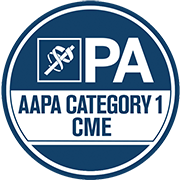WMJ Vol 122 Issue 3: How Patients With Limited English Proficiency Make Health Care Decisions: Hmong Patients’ Perspectives
ABSTRACT
Introduction: Information about how the limited English proficiency immigrants make their decisions to seek health care is not well understood. With acculturation, immigrants tend to shift their beliefs and practices towards the practices of their host country. Yet, little is known whether this holds true for the Hmong’s health care decision-making.
Methods: To understand the health care decision-making process of limited English proficiency Hmong, we conducted semistructured interviews with 11 Hmong adults with limited English proficiency. Interviews were audio-recorded, transcribed, and analyzed using directed and conventional content analysis.
Results: We identified several themes: participants sought advice and information from family members who were proficient in English and Hmong and/or who had a health background for a treatment that they perceived to be potentially life-threatening. However, participants were more reliant on their own decision-making in medical situations that were time sensitive. Participants without immediate family asked for health advice from community members or peers who had personal experience with the health condition or treatment.
Conclusions: Our findings suggest a cultural shift in Hmong health care decision-making processes from relying on clan leaders and elders to seeking out the advice of adult children and spouses. Understanding this change in cultural decision-making dynamics will help health care professionals provide more culturally competent care in areas where the Hmong community have a prominent presence.
Intended Audience
The intended audience for this journal-based activity is healthcare providers caring for the people and communities of Wisconsin and beyond.
Learning Objectives
As a result of this journal-based activity, learners as members of the healthcare team will be able to:
- Elaborate on health disparities experienced by the Hmong people who immigrated to the United States.
- Summarize the themes pertaining to the healthcare decision-making process of limited English proficiency Hmong that emerged from this interview-based study.
- Discuss how a cultural shift in Hmong healthcare decision-making manifests in the learner’s team-based clinical practice.
FACULTY DISCLOSURE
It is the policy of the University of Wisconsin–Madison Interprofessional Continuing Education Partnership (ICEP) to identify, mitigate and disclose all relevant financial relationships with ineligible companies* held by the speakers/presenters, authors, planners, and other persons who may influence content of this accredited continuing education (CE). In addition, speakers, presenters and authors must disclose any planned discussion of unlabeled/unapproved uses of drugs or devices during their presentation.
For this accredited continuing education activity all relevant financial relationships have been mitigated and detailed disclosures are listed below.
| Name of Individual | Individual's Role in Activity | Financial Relationship Disclosure | Discussion of |
| Marianna Shershneva, MD, PhD | Accreditation Specialist | No relevant relationships with ineligible companies to disclose | No |
| Phia Xiong, MD, MPH | Author | No relevant relationships with ineligible companies to disclose | No |
| Maichou Lor, PhD, RN | Author | No relevant relationships with ineligible companies to disclose | No |
| Linda S. Park, PhD | Author | No relevant relationships with ineligible companies to disclose | No |
| Elizabeth A. Jacobs, MD, MPP | Author | No relevant relationships with ineligible companies to disclose | No |
| James Sanders, MD, MPH | Reviewer | No relevant relationships with ineligible companies to disclose | No |
| Kajua B. Lor, PharmD | Reviewer | No relevant relationships with ineligible companies to disclose | No |
| Caitlin Weitzel, APNP, ACNP, MSN | Reviewer | No relevant relationships with ineligible companies to disclose | No |
| Robert Treat, PhD | Editor | No relevant relationships with ineligible companies to disclose | No |
| Cassie Meffert, PA | Reviewer | No relevant relationships with ineligible companies to disclose | No |
|
*Ineligible companies are those whose primary business is producing, marketing, selling, re-selling, or distributing healthcare products used by or on, patients.
The ACCME does not consider providers of clinical services directly to patients to be ineligible companies.
Accreditation
Accreditation Statement
 | In support of improving patient care, this activity has been planned and implemented by the University of Wisconsin–Madison ICEP and the Wisconsin Medical Journal. The University of Wisconsin–Madison ICEP is jointly accredited by the Accreditation Council for Continuing Medical Education (ACCME), the Accreditation Council for Pharmacy Education (ACPE), and the American Nurses Credentialing Center (ANCC), to provide continuing education for the healthcare team. |
Credit Designation Statements
American Medical Association (AMA)
The University of Wisconsin–Madison ICEP designates this journal-based CE activity for a maximum of 1.0 AMA PRA Category 1 Credit™. Physicians should claim only the credit commensurate with the extent of their participation in the activity.
American Nurses Credentialing Center (ANCC)
The University of Wisconsin–Madison ICEP designates this journal-based CE activity for a maximum of 1.0 ANCC contact hour.
AMERICAN ACADEMY OF PHYSICIAN ASSISTANTS (AAPA)
 | The University of Wisconsin–Madison ICEP has been authorized by the American Academy of PAs (AAPA) to award AAPA Category 1 CME credit for activities planned in accordance with AAPA CME Criteria. This activity is designated for 1.0 AAPA Category 1 CME credits. Approval is valid until 04/21/2025. PAs should only claim credit commensurate with the extent of their participation. |
Continuing Education Units
The University of Wisconsin–Madison ICEP, as a member of the University Professional & Continuing Education Association (UPCEA), authorizes this program for 0.1 continuing education units (CEUs) or 1 hour.
Available Credit
- 1.00 AAPA Category 1 CME
- 1.00 AMA PRA Category 1 Credit™
- 1.00 ANCC Contact Hours
- 1.00 University of Wisconsin–Madison Continuing Education Hours
- 1.00 Approved for AMA PRA Category 1 Credit™
Accessibility
If you need anything to participate in this program, please contact [email protected].
Required Hardware/software
Free, current version of Chrome, Firefox, Safari, or Edge. Some older browsers and Microsoft Internet Explorer could produce error messages or not display the content correctly.
Free, current version of Adobe Acrobat Reader or other .pdf reader.

 Facebook
Facebook X
X LinkedIn
LinkedIn Forward
Forward